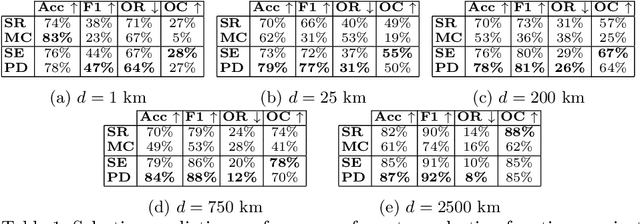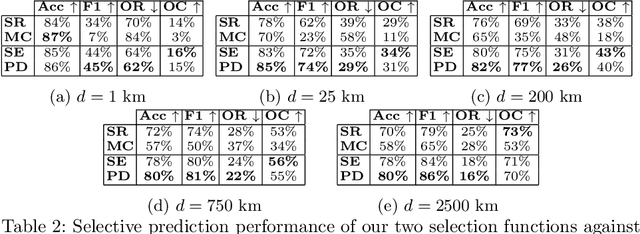Leveraging Selective Prediction for Reliable Image Geolocation
Paper and Code
Nov 23, 2021



Reliable image geolocation is crucial for several applications, ranging from social media geo-tagging to fake news detection. State-of-the-art geolocation methods surpass human performance on the task of geolocation estimation from images. However, no method assesses the suitability of an image for this task, which results in unreliable and erroneous estimations for images containing no geolocation clues. In this paper, we define the task of image localizability, i.e. suitability of an image for geolocation, and propose a selective prediction methodology to address the task. In particular, we propose two novel selection functions that leverage the output probability distributions of geolocation models to infer localizability at different scales. Our selection functions are benchmarked against the most widely used selective prediction baselines, outperforming them in all cases. By abstaining from predicting non-localizable images, we improve geolocation accuracy from 27.8% to 70.5% at the city-scale, and thus make current geolocation models reliable for real-world applications.
 Add to Chrome
Add to Chrome Add to Firefox
Add to Firefox Add to Edge
Add to Edge